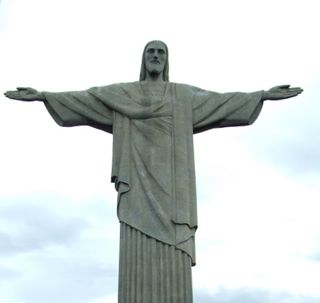Jesus Mortal |
|
 |
|||||
bible The Christian bible consists of two or three sections, depending. Christians and Jews alike accept Moses’ law, the prophets, and the writings, which compose the Jewish bible and at least part of the Christian old testament. The eastern orthodox and the Roman catholics also accept several later works, a second canon, as part of their old testament. These works were honored by the Alexandrian Jews of Jesus’ time and included in their Septuagint, but they didn’t make the cut when the Jewish rabbis defined their canon after the destruction of Herod’s temple. Protestants, like Jews, don’t include these works in their scriptures. The third section is the new testament, consisting of four gospels, many letters (epistles), and one apocalyptic book. These works were authored from roughly 50 to 150. In Jesus’ day, religious authorities had not yet defined the scope of scripture. Jews stood out from the pagans as people with a book. They had religious scripture that defined their history, law, ethics, cult, festivals, and culture. The conservative Sadducees only accepted Moses’ law as scripture, as did the Samaritans, but the prophets and the writings were also popular, notably with the innovative Pharisees. Meanwhile, newer works also carried some authority, such as the books of the Maccabees. The new testament would have come to news to Jesus. He didn’t write it, nor did he commission anyone to write it, or even predict that it would be written. His message was in speech and action, not text. The oral tradition worked fine for the first Christians, but only for the very first ones. The earliest works in the new testament are Paul’s letters to various congregations, and he meant them as authoritative, but not as scripture. Next came the gospels, first committed to paper a generation after Jesus had died, when his followers were also passing away and memory of his words and deeds was getting hazier. Finally, various less prominent works were generated, dealing especially with concerns that had arisen relatively late: church organization and Jesus’ surprising tardiness in returning to his flock. These roll in as late as 150. Capping the end of this collection, written around 100, is an apocalyptic work in which the author claims that the end of the world has begun, the book of Revelation. The five books of Moses got an overhaul around 400 BC to work them into shape, but the new testament never got that treatment. It was generated one book at a time, and it shows. The piecemeal and contradictory nature of the new testament presents something of a problem for Christians trying to derive doctrine from it. There’s little choice but to search the text for isolated statements that can be assembled and interpreted into some sort of coherent theology. Even so, certain major doctrines are missing, such as the trinity.
Read comments or make a comment here. |
|||||
contents table of contents you're already looking at it introduction for the inquisitive reader biographical overview who he was and wasn't
afterlife not Jesus' concern animal sacrifice bloodless religion apocalypse did Jesus preach hellfire? baptism sin wash for Jesus and others beatitudes Jesus' words and others' words beloved disciple witness for the un-gospel bible scripture old and new bishop the unjesus body focus on the physical Buddha Jesus' close kin charity key Christian virtue and legacy of Jesus The Da Vinci Code secret (and false) messages divorce women's status dreams convenient literary device Elijah Jewish prophet with his own second coming equality ancient source of modern egalitarianism exorcist Jesus and demons failure reinterpreting Jesus as a failure faith from trust to blind belief father Jesus on titles of honor Francis of Assisi the most Christlike Christian Gandhi the 20th century's most Christly holy man Galilee Jesus' inauspicious homeland gentiles Jesus' inadvertent audience god how Jesus became god golden rule key to Jesus' success gospels competing accounts heaven from sky to spiritual home hell revenge fantasy humanism Jesus' legacy inerrant Christian treatment of scripture Thomas Jefferson ethics of Jesus Jewish guilt Christian libel John's gospel the un-gospel John the baptist, see John the washer John the washer Jesus' apocalyptic mentor Judaism libeled religion of Jesus kingdom of god what Jesus promised Lao Tzu poet of the cosmic way logos jesus as the word of god C. S. Lewis famous, flawed trilemma little drummer boy Luke beats Matthew logos Jesus as the divine word LORD Yahweh transitioning to the one god of all Luke's gospel the all-around best gospel Mark's gospel the gospel that lost its point Mary of Magdala women, visions, and sex massacre of the innocents bloodshed starts early Matthew's gospel best gospel for church reading Mormon, see Joseph Smith Moses Jewish lawgiver Muhammad a prophet who got it right mystery Orpheus and transubstantiation oppression origin of Jesus' compassion The Passion of the Christ Luke as buzzkill Paul revealer of the revealer private and public public Jesus and secret Christ relativism the secret power of the golden rule sacrifice Jesus' death and Christian sacrament Albert Schweitzer Jesus as a failure sheol dark pit of death show Jesus' deeds as put-ons slavery abolished by Jesus' efforts Joseph Smith flesh-and-blood Jesus Socrates secular Jesus son of god on close terms with the man upstairs soul, see body synoptics three gospels that agree temple center of Jewish religion trinity unifying and divisive doctrinre vision, see dreams Yahweh, see LORD Zoroaster Persian dualistic holy man
|
|||||